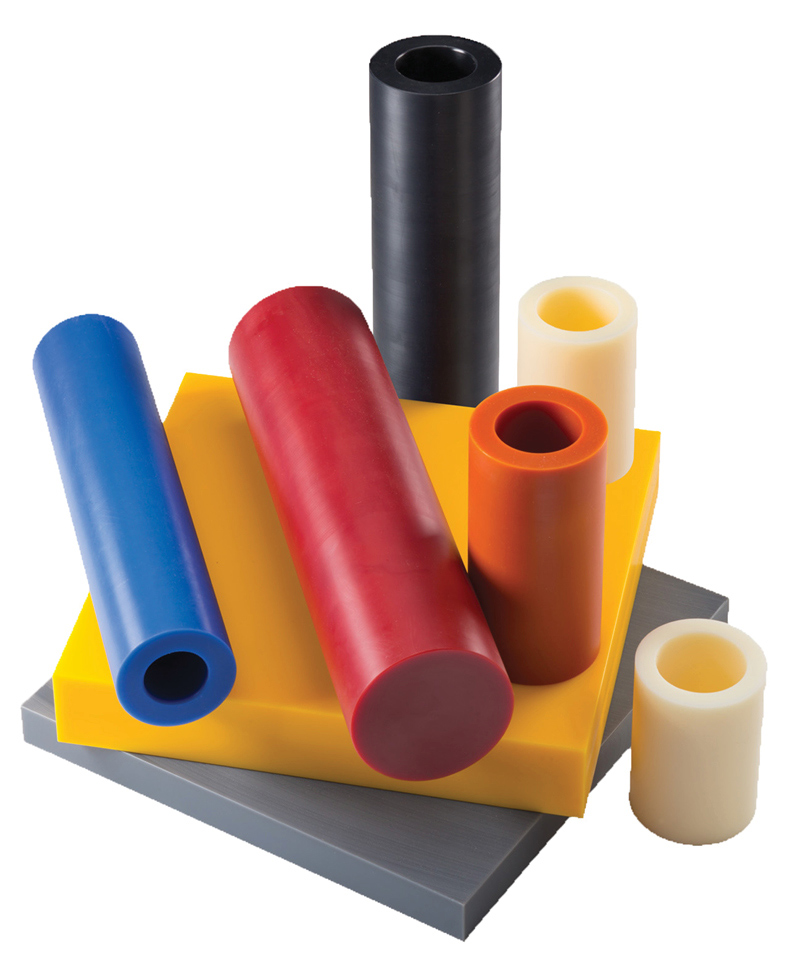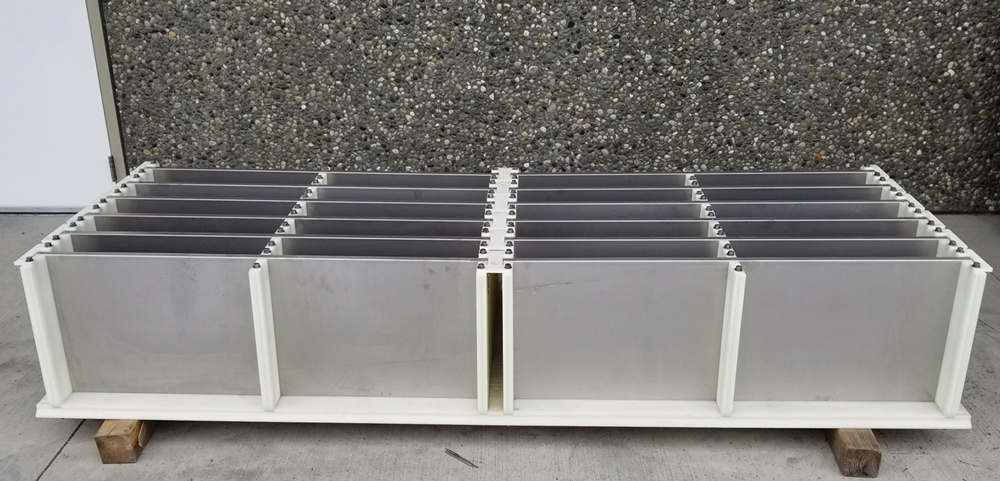ong before industrialized food processing was helping the world to grow, mankind was challenged with preserving fresh food and water. Innovative packaging was necessary to preserve and store food for everyday life or travel. In today’s environment, when we think about packaging for the food industry, we recognize the use of polymers as our ‘go to’ solution. Let’s take a short walk back through the evolution of packaging:
In 3500 B.C. the ancient Egyptians discovered glass blowing to create containers for food and water storage.
In 105 A.D. Emperor Ts’ai Lun of the Imperial Court invented paper, the oldest example of flexible packaging.
Tupperware, developed in 1946, are polyethylene food containers.

Classic Tupperware®
Cast nylon materials, however, are a great alternative to metals in various applications. High modulus of elasticity, paired with good impact strength, chemical resistance and food compliancy, makes cast nylon a material of choice. The custom cast process allows for a wide variety of custom shapes, enabling the consumer to manufacture parts in an economical way. The material is easy to machine, providing several advantages over machined metal parts.
The visual detection of foreign material plays a big role in food processing safety, and cast nylon material can be colored blue and still be food compliant. Other colors can be used for identification purposes.
In the poultry processing industry, meat must move fast in order to satisfy the demand.
A chicken processing plant can kill and process 15,000 chickens per hour. High-speed moving parts often require repeated lubrication. With the implementation of cast nylon materials, the machine manufacturers were able to increase their production speed and efficiency. Sprockets, guides and cams allow the machinery to run at high speed. Oil-infused cast nylon materials eliminated the need to grease the components and have also increased the safety of the food products.
The daily cleaning procedures with harsh cleaning agents do not affect the material, and provide a long lifetime of all components.


Poultry cam made from NYCAST 6PA FG
The invention of panko bread happened quite accidentally during World War II. While the Japanese were at war with the Russians, they wanted soldiers to be able to eat bread out on the battlefield. Without the ability to use/transport ovens, the innovative Japanese utilized their tanks’ batteries to quickly “bake” their bread. They discovered that the bread was extremely light and airy, with very small air pockets. This method of using electric current to bake bread with no brown crusts, is how panko is made today. This is a form of electroconductive heating which passes electric current through food to heat it both rapidly and evenly.
Cast nylon material helps to keep the current within electrocuted trays where the Panko bread is baked.

Panko oven with NYCAST 6PA insulating plates

Insulating plates made from NYCAST 6PA FG for Panko oven baking trays

Milk carousel with wheels made from NYCAST 6MP
FDA
Any food additive should be deemed unsafe unless it is used in conformity. The FDA requires that polymer materials and their components/ additives to produce the polymer, have to be in compliance with their rules. Specific migration tests have to be performed for various materials.
3-A Sanitary Standards
3-A was founded in the 1920s by three dairy associations aiming to establish sanitary standards and practices for the equipment and systems used to process milk, milk products and other perishable foods.
Prop 65 (California Proposition 65)
Prop 65, also known as California’s Safe Drinking Water and Toxic Enforcement Act of 1986, protects California’s drinking water from being contaminated with chemicals known to harm humans.
PFAS (Per- and polyfluroalkyl substances)
This group of chemicals contains thousands of substances. They are persistent in nature and can cause severe health risks, including various types of cancer.
Cast nylon materials can comply with all of the above regulations. In the manufacturing process of Cast Nylon 6, it is important to choose the compliant additives and control the polymerization process. If the process is not controlled correctly, the material can fail leech testing and would not comply with established regulations.